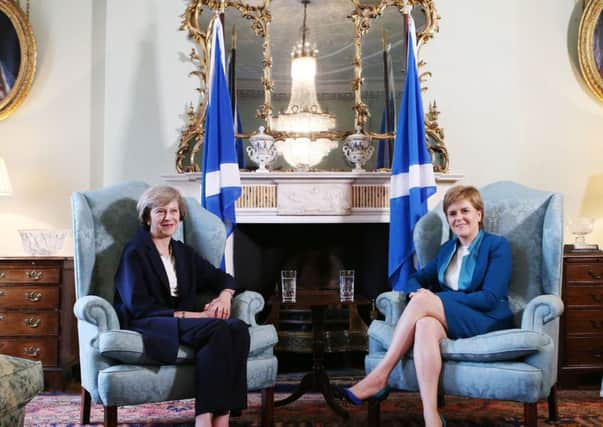Kenny Rose: Government's Brexit strategy explained


As part of its judgement on 24 January, the Supreme Court ruled that the UK Government has no legal obligation to obtain the consent of the Scottish Parliament before triggering Article 50. The ruling has no direct impact upon the Scottish Government’s declared position of seeking a deal for the UK (or failing that, Scotland) which avoids a “hard” Brexit although that does appear to be the direction of travel after Theresa May stated that her intention is for Britain to leave the Single Market.
The Scottish Government has previously set out an alternative case for remaining within the Single Market in its Scotland’s Place in Europe paper. It proceeds on the premise that Scotland voted to remain in the EU and that its economic and wider interests are best served by remaining within it. There is recognition, however, that given the UK-wide result of the EU referendum there is political imperative for the Westminster Government to trigger Article 50 and for the UK to leave the EU.
Advertisement
Hide AdAdvertisement
Hide AdIn these circumstances, the paper argues, the next best option would be retention of membership of the Single Market through the European Economic Area (EEA) agreement, at a UK or Scotland level.
The paper highlights available mechanisms that would allow Scotland, as part of the UK, to remain within the EEA and the Single Market while acknowledging these potential arrangements come with some additional complexities and require buy-in from the EU and the UK.
Pointing to a “Norway model”, one route suggested is for Scotland to pursue this differential arrangement through UK sponsorship of its membership of the European Free Trade Agreement (EFTA). EFTA is only open to fully independent nation states. The Scottish Government argues, however, that there is a benefit to the UK as a whole in having at least part of its territory still within the Single Market and able to retain and attract indigenous and inward investment on that basis.
This ongoing membership would require Scotland to maintain financial contributions to the EU which, the Scottish Government argues, could be met from a pro-rata share of current UK contributions to the EU. Scotland would also remain bound by EU law which would apply to all goods and services it traded with the rest of the Single Market. Such an arrangement would be impacted if the UK leaves not only the Single Market but is also no longer part of the Customs Union and any differentiated arrangement could have an impact on how trade is conducted with the rest of the UK.
Any EEA-style deal would require Scotland to uphold the core principle of the free movement of people across the EU. There is no proposal within the paper for Scotland to join the Schengen area and it suggests EU migrants out to use Scotland as an access route to other parts of Britain could be dealt with through immigration rules applied in the rest of UK.
It is acknowledged that such a migration policy would pose some challenges but the Scottish Government has pointed out that the devolution settlement is based upon differentiated arrangements between different parts of the UK and other states, including Canada and Australia, have schemes whereby migrants must live and work in specified geographical areas.
Implementing these arrangements, as well as others set out in the paper, would require additional devolution of powers from Westminster to the Scottish Parliament, not just in areas like immigration but also around business and trade regulation.
The clear indications are that the UK Government does not support a different solution for Scotland and that the outcome of the Brexit agreement will be binding on all the UK’s nations and regions, including Northern Ireland and the City of London, which also voted to remain. As we know, failure by the UK Government to address the Scottish Government’s Single Market aspirations will increase the chances of a second independence referendum.
Advertisement
Hide AdAdvertisement
Hide AdWhatever the outcome of Brexit negotiations and whether or not there will be any form of differential deal for Scotland, there is an ongoing need to consider the implications of the final agreement and how it will lead to a reshaping of the intra-UK constitutional arrangements, and on Scottish devolution in particular; for instance, will there be devolution of powers over VAT which cannot be done within the EU?
In the meantime, Scottish businesses should plan how they will deal with the effects of hard Brexit, even if there is little clarity on the detail.
• Kenny Rose is a Partner at CMS